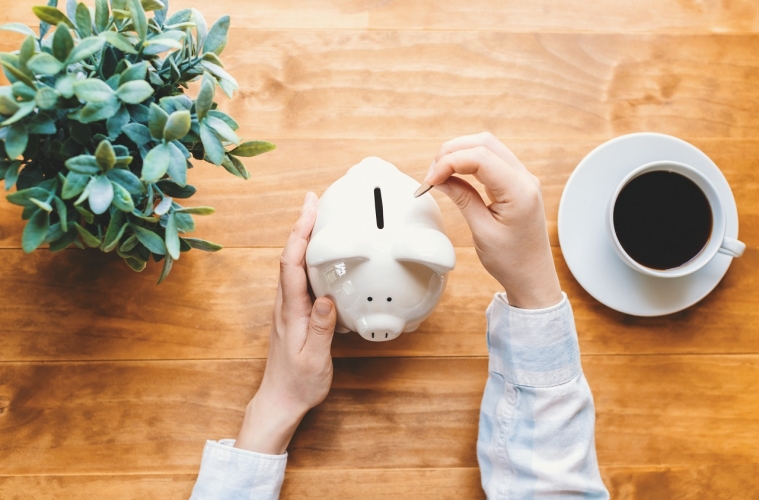Guest Post: Richard Laycock, Insurance expert at Finder, shares his tips on putting more money in the bank before you move overseas.
Around 1 million Australians are currently living overseas with plenty more expats flying out every day. That’s a lot of people with a lot of life admin to figure out before they go. Sorting out your finances is especially important, and if you’re planning on living in one location for an extended period of time, a lot of countries won’t even let you enter unless you can prove that you have a certain amount of savings in the bank. So how can you up your savings before you leave?
Do your research
One quick Google search can help you find pages and pages of self-help blogs and articles along the lines of “How I saved $15,000 in six months” and “How I made money with no full-time job”. Of course, these should be taken with a grain of salt, but you can definitely get some good inspiration from these kinds of articles. Whether it’s a first-person take on budgeting mishaps or tips and tricks for picking up extra work on the side, you can see how other people have succeeded and learn from it.
Set up a separate bank account
Having a linked savings account is a good idea, but if you’re really keen to put aside as much money as possible for your trip, try setting up a separate bank account. Transfer a set amount into this account every month and make it difficult for yourself to transfer money back on a whim. This probably means setting up the new account with a different bank. It usually takes a couple of days for money transfers to be processed between different banks, which means you won’t be able to make any impulse purchases with your trip money. You can compare high-interest savings accounts online to get the best value.
Know how much you need
As I touched on before, most countries will insist that you have a certain amount of money saved before you move there. For example, if you’re moving to the UK on a Tier 1 visa, you’ll need to prove that you have at least £1,890 (around AUD$3,300) saved. Meeting these requirements shows that you will be able to support yourself for a while.
Have a savings goal in mind
Once you know the minimum amount of savings that you need, set a higher goal. You’ll want to have as much set aside as possible so that you are comfortable while you settle in and look for more permanent accommodation. If you don’t have a job locked in then it’s important to have extra cash in the bank that will last you for a while. Further to this, setting a savings goal and sticking to it will probably motivate you. It will reinforce the fact that you are saving and encourage you to contribute as much as possible to your travel savings account.
Think carefully about your purchases
This can apply to anything from your morning coffee to your plane ticket. Really think twice before spending money. I don’t want to sound like a cliché, but cutting out your daily coffee purchase and sticking to instant or homebrew instead can really add up (seriously, MoneySmart says we spend $1.1 billion a year on coffee). Similarly, when you’re booking everything for your trip you should think about value instead of price. For example, if you’re booking travel insurance, don’t get a policy that’s cheap but that doesn’t include medical cover.
Transfer your money smartly
When transferring your money to an overseas bank account, consider using a standalone international currency specialist such as WorldFirst rather than your regular bank. Exchange rates through WorldFirst can be up to seven times cheaper than some Australian banks, so if you’re transferring a large amount, this can be a significant price difference.
For more information on transferring your money to an overseas bank account, get in touch with a WorldFirst currency specialist today on 1800 835 506, or visit the website: worldfirst.com/au
Disclaimer: These comments are the views and opinions of the author and should not be construed as advice. You should act using your own information and judgement. Whilst information has been obtained from and is based upon multiple sources the author believes to be reliable, we do not guarantee its accuracy and it may be incomplete or condensed. All opinions and estimates constitute the author’s own judgement as of the date of the briefing and are subject to change without notice. Please consider FX derivatives are high risk, provide volatile returns and do not guarantee profits. We have no commercial affiliation with any organisation or commercial interest regarding the venues mentioned in this article. The information is only provided as gathered and should be verified before, using your own judgement.
*Although WorldFirst has prepared the Information contained in this website with all due care and updates the Information regularly, World First does not warrant or represent that the Information is free from errors or omission. Whilst the Information is considered to be true and correct at the date of publication, changes in circumstances after the time of publication may impact on the accuracy of the Information. The Information may change without notice and WorldFirst is not in any way liable for the accuracy of any information printed and stored or in any way interpreted and used by a user.


